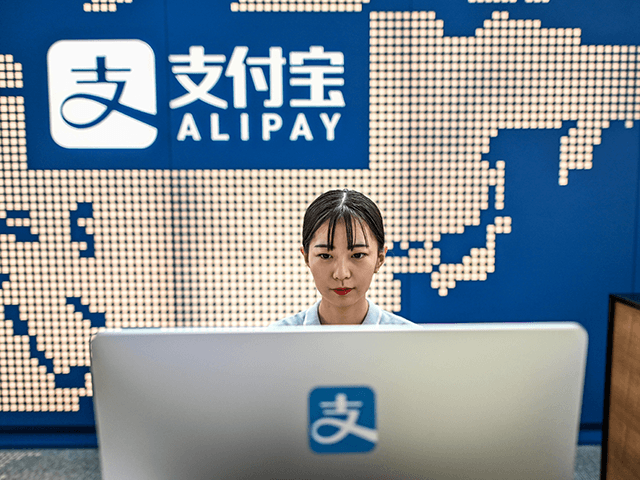China’s State Administration for Market Regulation (SAMR), its top market regulation agency, announced the launch of an antitrust probe into tech giant Alibaba on Thursday.
Outside observers saw the investigation as another element of the Communist elite nervously attempting to curtail the power of China’s richest man, Alibaba owner Jack Ma.
Chinese state media presented the investigation as the result of “tip-offs” received by SAMR, which seeks to “rectify market order and facilitate a free, fair, and non-discriminative business environment.”
According to state media, the investigation of Alibaba will improve the “platform economy” and strengthen “anti-monopoly supervision in the internet sphere.”
The investigation was announced after China’s “annual tone-setting economic meeting,” attended by other top tech companies such as Tencent and Pinduoduo. The meeting supposedly stressed the importance of avoiding monopolistic practices and “preventing the disorderly expansion of capital.”
The Associated Press reported a major topic at the meeting was “group buying,” a practice in which neighbors in China band together and place bulk orders for groceries and other goods they distribute among themselves after delivery.
Alibaba and the other e-commerce companies are reportedly happy with group buying because it cuts down on delivery and processing costs, but apparently the Communist Party is suspicious of the practice. The AP suggested one reason for regulatory displeasure with group buying could be that it makes dumping and price fixing easier for the big Internet companies, which occasionally try to steal business from each other by flooding the market with extraordinarily high discounts for bulk purchases.
“Alibaba will actively cooperate with regulators to complete the investigation,” the report said.
Few details were provided about the misdeeds Alibaba is accused of, beyond a reference to its habit of requiring merchants who use its titanic e-commerce platform to sign agreements that they will not list their products on rival platforms.
CNN on Thursday noted a simultaneous announcement by the People’s Bank of China that Alibaba’s financial offshoot, the Ant Group, has been summoned to a meeting with financial regulators for enhanced supervision. The Ant Group’s plan for an initial public offering, potentially the largest IPO in world history, was scuttled by Chinese regulators in November.
CNN, the AP, and other media analysts speculated that the Chinese Communist Party (CCP) is worried about the explosive growth of Internet commerce and wants to tighten its political grip on China’s tech titans.
The New York Times said the CCP is most interested in targeting “the business empire of Jack Ma,” noting that regulators began swarming over Ma’s operations after he criticized the Chinese government for “being too obsessed with containing financial risk.”
The most cynical view of China’s zeal for “anti-monopoly” investigations is that the CCP doesn’t want a businessman such as Ma to become so influential that he challenges the power of the Party and its autocratic leader, Xi Jinping. On the other hand, China is not the only government to grow suspicious of Big Tech mega-corporations using their unprecedented power over online markets to stifle competition.
“Charismatic Jack Ma, a self-made champion of small business and innovation, is popular in China, and his cult-like following may have become a political liability to the companies he founded even though he no longer has a role on the board of directors,” Reuters observed, describing the Alibaba anti-trust investigation as Xi dumping coal in Ma’s Christmas stocking.
Ma offered his sharp criticism of China’s financial regulators in late October, possibly because he knew they were about to impose damaging new rules on the tech and financial sectors that would stifle innovation. Some sources in the Chinese government claimed it was the other way around, and regulators only started digging deep into Ma’s business after his “outburst” at a major financial conference. Others said the Chinese government was worried about national, and even global, financial stability if Ma was allowed to proceed with his Ant Group IPO.
Alibaba shares tumbled by over eight percent after the anti-trust probe was announced on Thursday, a loss of some $60 billion in value.

COMMENTS
Please let us know if you're having issues with commenting.